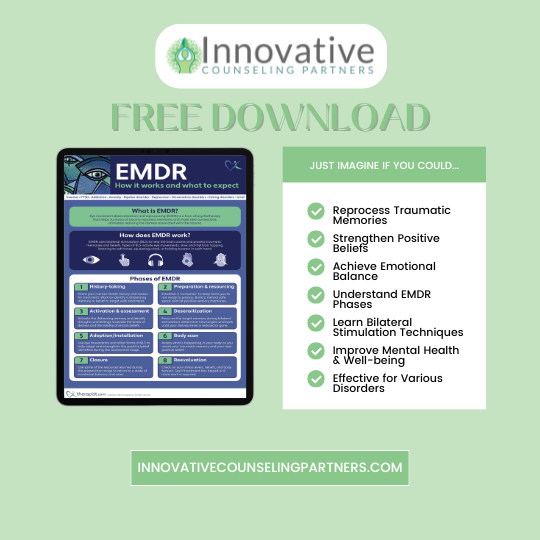If you’re curious about how Eye Movement Desensitization and Reprocessing (EMDR) therapy can help you heal from trauma, you’ve come to the right place. EMDR is a powerful form of psychotherapy designed to assist trauma survivors in reprocessing memories and forming new, healthier connections, which can significantly reduce the distress associated with traumatic experiences.
What is EMDR?
Eye Movement Desensitization and Reprocessing (EMDR) is a form of psychotherapy that helps individuals who have experienced trauma. This therapy helps reprocess traumatic memories, allowing individuals to make new connections and reduce the emotional distress associated with these memories.
How does EMDR work?
EMDR therapy utilizes bilateral stimulation (BLS) to help the brain access and process traumatic memories and beliefs. BLS can include various methods such as eye movements, slow and rhythmic tapping, listening to soft tones, squeezing a ball, or holding buzzers in each hand. These techniques stimulate both sides of the brain, which aids in processing and integrating traumatic memories.
Phases of EMDR:
- History-taking: Share your mental health history and the reason for seeking treatment.
- Preparation & resourcing: Establish a mental “container” to hold items you’re not ready to process. Build a mental safe space and list positive sensory memories.
- Activation & assessment: Activate the distressing memory and identify associated thoughts and feelings. Evaluate distress levels and the validity of certain beliefs.
- Desensitization: Focus on the target memory during BLS until your distress level is reduced.
- Adoption/installation: Use BLS to strengthen the positive belief identified during the assessment.
- Body scan: Assess your body’s response to the traumatic memory and new positive belief.
- Closure: Use resources learned during the preparation stage to return to a state of emotional balance.
- Reevaluation: Check stress levels, beliefs, and body tension to determine if further treatment is needed.
Benefits of EMDR:
EMDR can be beneficial for treating a variety of conditions including trauma, PTSD, addiction, anxiety, bipolar disorder, depression, dissociative disorders, eating disorders, and grief. By reprocessing traumatic memories, EMDR helps individuals reduce their emotional distress and develop healthier coping mechanisms.
Invitation to Begin Your Healing Journey:
Are you ready to take the first step towards healing and improving your mental well-being? At Innovative Counseling Partners, our experienced therapists are here to help you navigate your journey with EMDR therapy. Discover more about how EMDR can help you or someone you love by reading our comprehensive guide and downloading our detailed PDF. Visit our website or contact us today to schedule a consultation and begin your path to recovery.
#MentalHealth #EMDR #Therapy #TraumaRecovery #Wellness #InnovativeCounselingPartners



Comments are closed.